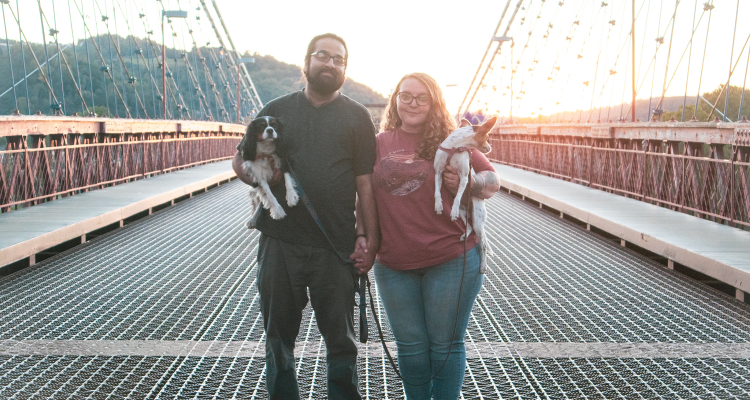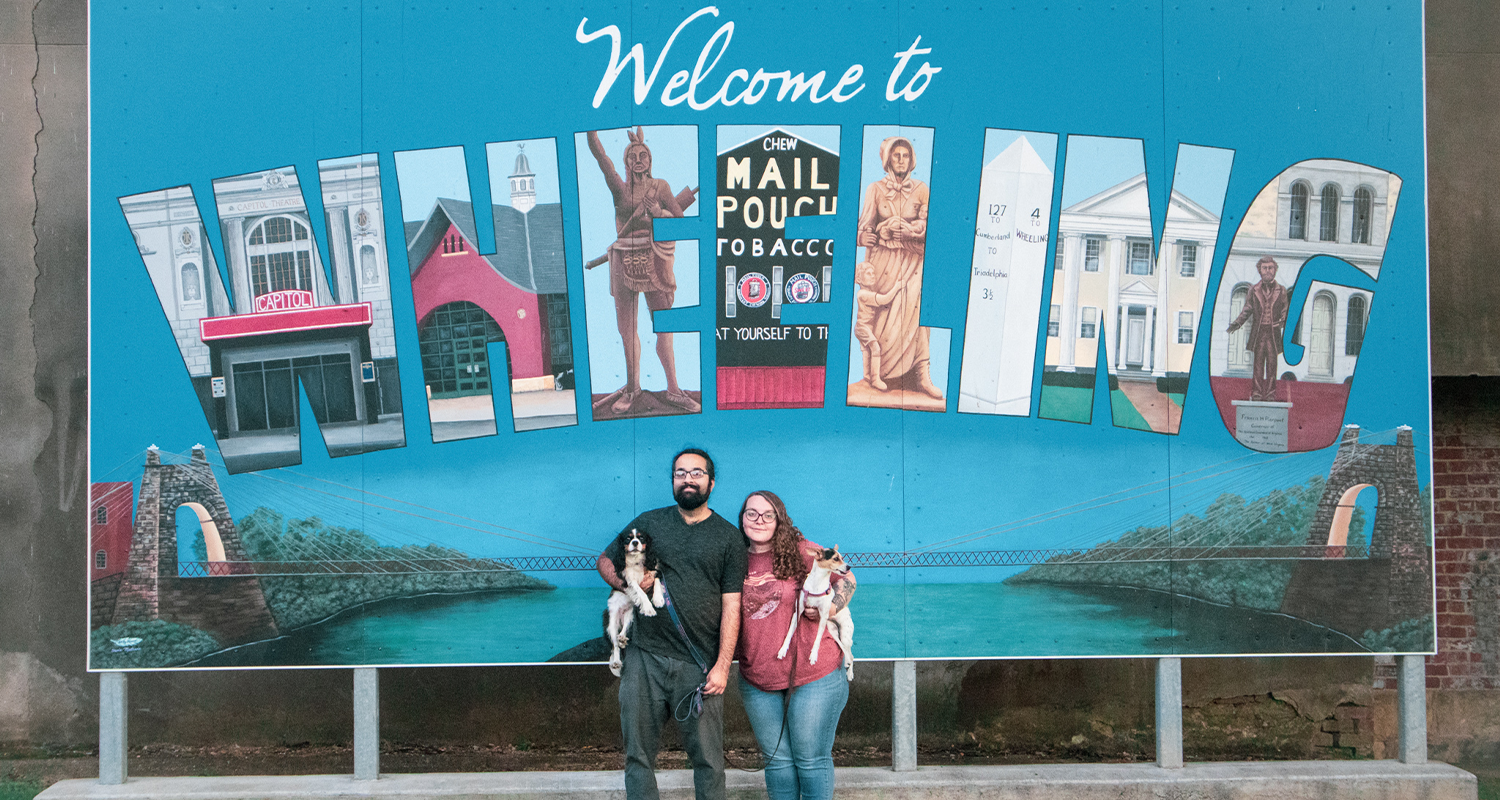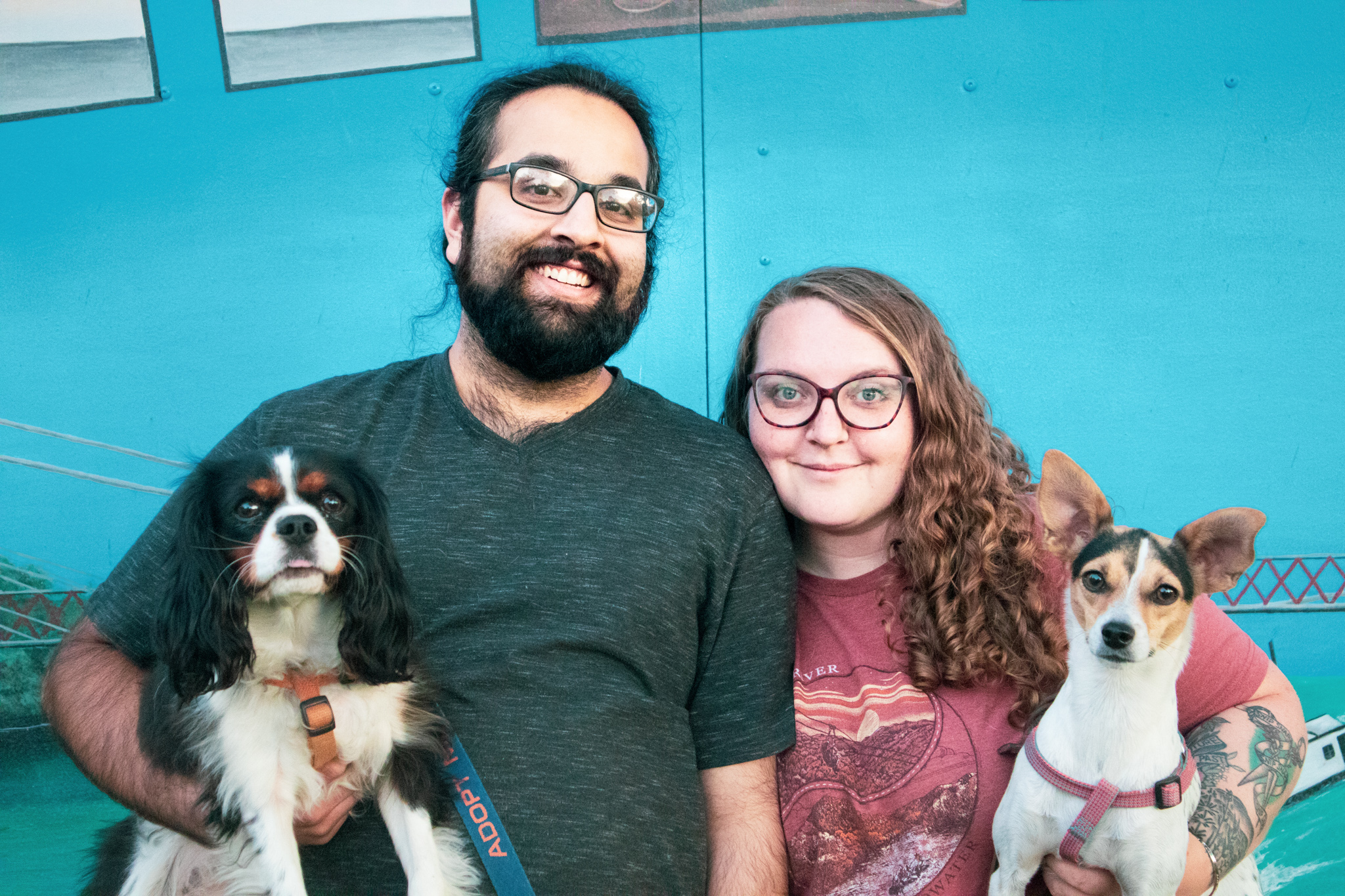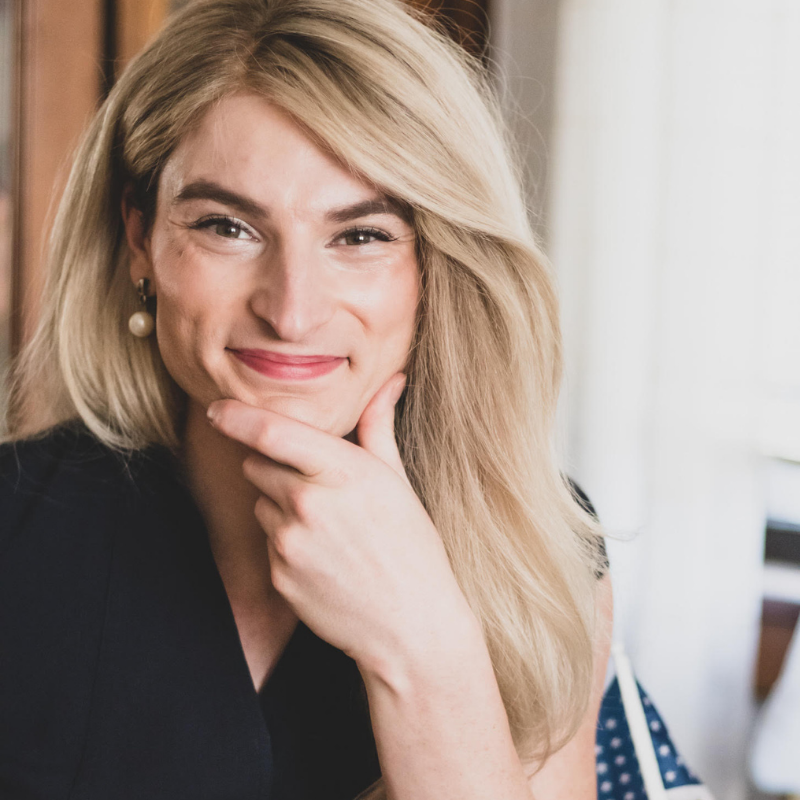Writer’s Note: For years, the state of West Virginia has been in population free fall. People leave our state for various reasons and while some of the reasons require statewide changes, others are within our community’s control. Cities like Wheeling and others across the state are working hard to reverse this dangerous trend and, in many ways – it’s already happening. Why Wheeling introduces you to the folks choosing Wheeling as their new hometown and what led them to that decision.
Whenever I meet new folks in the city, I always ask the question: Why Wheeling?
I’m fascinated by what makes our city the chosen city for young and talented people and I’m even more interested in finding out what makes them stay.
Why Wheeling? Let’s find out.
Meet Kellie and Haseeb Ahmad. I sat with the young couple on a breezy Sunday afternoon in their beautiful North Wheeling apartment to ask them about their experience in the Friendly City over some delightful pumpkin spice cider.
Here’s their story.
After loading up a Uhaul with everything they owned in October 2016, Kellie and Haseeb left their town of Fairfax, V.A., and headed 277 miles northwest to Wheeling. Neither had heard of the city of Wheeling before, but after some late-night Google searches Kellie, a soon-to-be student at Belmont College, discovered a bridge that changed everything.
“I was literally just searching Google for the surrounding areas and the Wheeling Suspension Bridge pops up. I was like ‘this is so awesome’, Kellie laughed – and that was all it took for me to say – that’s where I want to live.”
Once they made it into the city, however, Kellie and Haseeb found that things were a little different than what they were used to.
“My first impression of Wheeling was ‘small town’” Kellie said – “it was much smaller than the places we were used to. Just the fact that things weren’t open on Sunday or on Labor Day was a big deal to us. Being from Northern Virginia we had never experienced that. My first thought was – ‘wow, this is a very different way of life.’ ”
While Wheeling’s small-town vibe is unlike its much larger sister cities, the couple soon found that the change of pace actually presented a kind of culture they were missing back home.
“In NOVA (Northern Virginia) people seem to ignore each other in the stores, in the parking lot, on the streets – no smiles or friendliness. Back home we lived in a 12-story building where you didn’t smile at people on the elevator – you really didn’t acknowledge them.” Haseeb laughs.
“When I think about it, it wasn’t just other people doing it to us, we were doing it to other people too,” Kellie notes. “So we’ve definitely changed as a result of being here – being more outgoing and more friendly overall.”
If you asked someone to speed round the four things they most associated with Wheeling, it may sound something like this…
Coleman’s fish
The Italian Festival
Potholes
And, hopefully – friendliness
It is our motto, after all.
Friendliness, however, is just one thing our community may offer new folks. For centuries, Wheeling has been known as a hub for manufacturing and development. Wheeling even held the title as the richest city per capita in America at the end of the 19th century. While we have long retired that title, remnants of our broad and complex history remain.
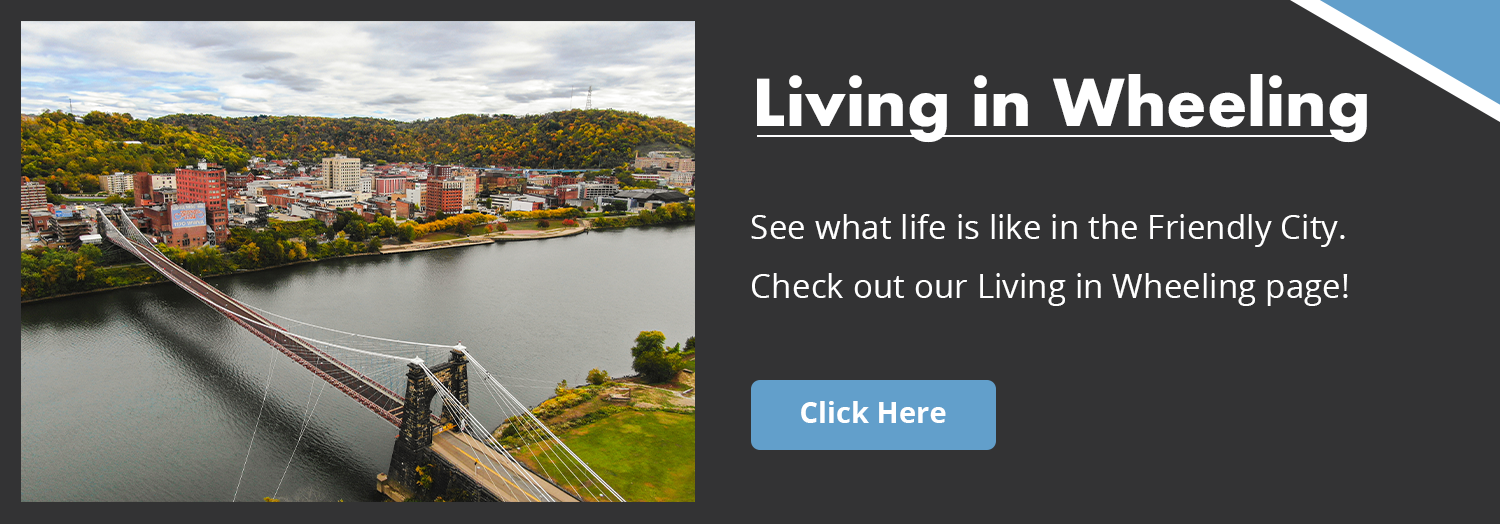
Kellie, a student of the building preservation/restoration program at Belmont College, shares her love of this history.
“When I look at a building like our apartment, I don’t just see this place that we live in, I see a place that was built for the nurses at Wheeling Hospital. There is so much history around us every day and now we get to interact with it. That’s what I really love about my work.”
Kellie specializes in stained glass restoration and is currently working on restoring windows in two historic East Wheeling homes.
During the first couple of months in Wheeling, the couple slowly started to build friendships – acknowledging the struggle to meet young, like-minded people in the city.
“Haseeb actually met our first real friend, Bailey, at Starbucks – we instantly clicked,” Kellie said. “That was our only friend for quite a while. Then we started meeting more folks from organizations like the Wheeling Young Preservationists. It was like we had one friend and then it was an explosion of other cool people that came out of the woodwork.”
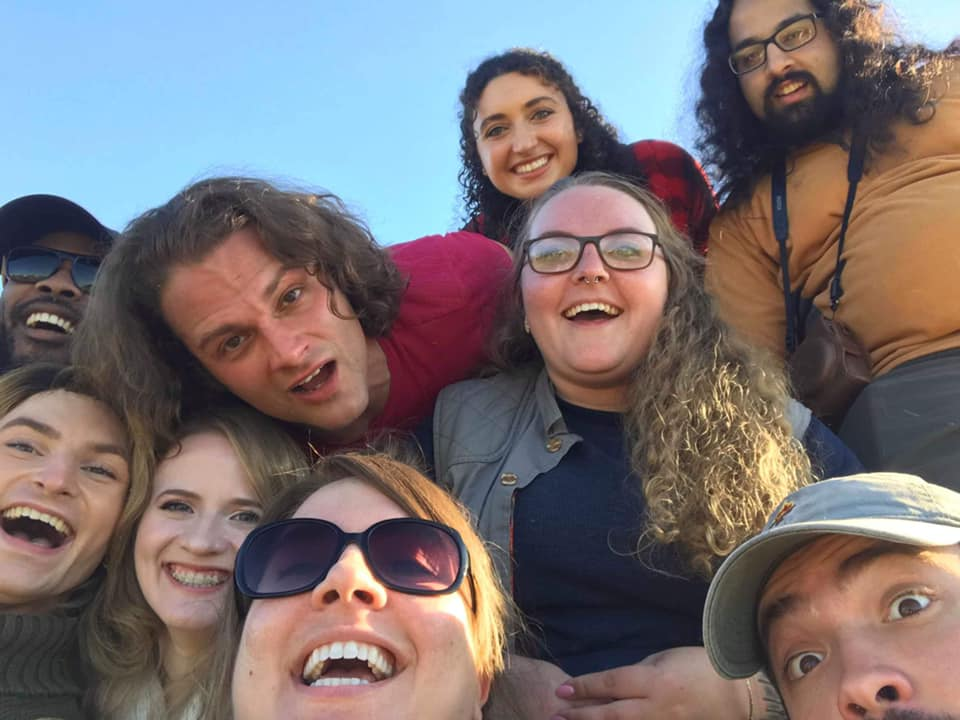
Part of the recent energy in Wheeling has been the individual and collective efforts of newcomers and life longers alike, deciding to forge the communities and culture they wanted to see. In 2020, It’s hard to ignore the strides local creatives, entrepreneurs, and developers are making to create the vibrant, forward-thinking communities we are seeing sprout up today.
“If you’re looking for a community those people are here. If you’re looking to socialize or party it up – those people are here too,” Kellie chuckles. “If you’re looking to settle down and live your life peacefully, that’s also here. There is every option you need. And if it isn’t here – we will help you build it.”
The concept of community is vital to building a city that feels diverse and inclusive, which are often two driving forces for attracting and retaining young people. Moreover, building these havens of diversity in rural places like West Virginia may soon begin to pay off if we take advantage of the “metropolitan sprawl” – described by the University of New Hampshire as the “domestic in-migration to rural counties near metropolitan areas”
Wheeling: “Hey, Pittsburgh, wanna grab a drink after this?”
After nearly finishing my own drink, I pressed Kellie and Haseeb to describe some of the ways they believe Wheeling and, more broadly the state of West Virginia, might attract and retain folks to live in the mountain state.
Kellie described her concern with a lack of broadband connectivity throughout the state as a potential barrier for newcomers. “I read a report that broadband access during COVID-19 declined by 13%. That is just unacceptable. And while this doesn’t affect me directly, if we lived 30 minutes in either direction – it would.”
She isn’t wrong – West Virginia has struggled to build an effective broadband infrastructure to remain competitive with our surrounding states. In 2019, it was found that only 1.9% of the Mountain State has fiber Internet, the lowest rate in the nation.
With that said, broadband connectivity didn’t stop the couple from planting their roots in West Virginia. In fact, after five years of dating, the couple married in Blackwater Falls, WV after Kellie proposed to Hasseb on a scrabble board.
Ultimately, the two lovebirds also fell in love with the state of West Virginia and have recently begun the search to purchase their first home in Wheeling – an idea unthinkable in Fairfax V.A., where the average home price topples at $580,000.
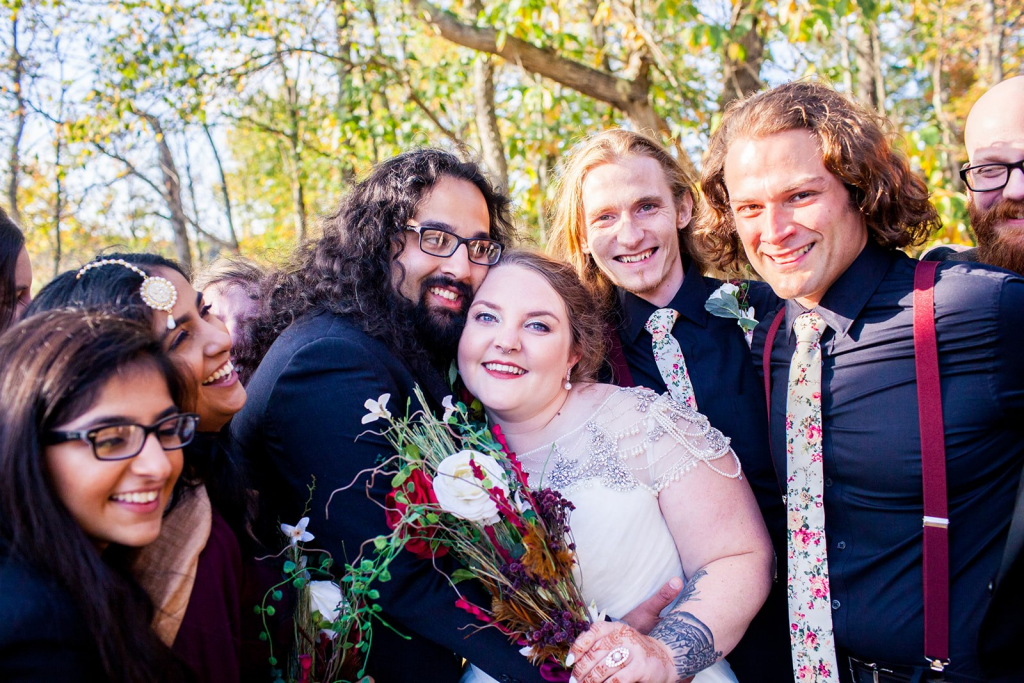
Kellie and Haseeb provide an important perspective on the concept of the generational divide many small towns like our own are up against. Industrial and manufacturing communities built for 20th-century working-class families are today experiencing an identity crisis and a choice. This begs the question, “who are we and who are we for?”
Similarly, people are acknowledging that bigger cities like Fairfax, V.A. offer a lifestyle difficult to maintain without a six figure income.
Wheeling, like many fledging rural communities, presents a sustainable middle ground.
“The affordable cost of living here is a huge deal to me.” Haseeb says “We have all this space in this apartment – where in NOVA, we paid twice as much for just a single room.”
“The great thing is that we can actually save money here,” Kellie adds. “We’ve never traveled as much as we do now – because we can afford to. We’re explorers, we’re campers and we can afford to do that here. We can live within our means, build savings, practice financial wellness and still be able to do the things we want to do outside of work and home.”
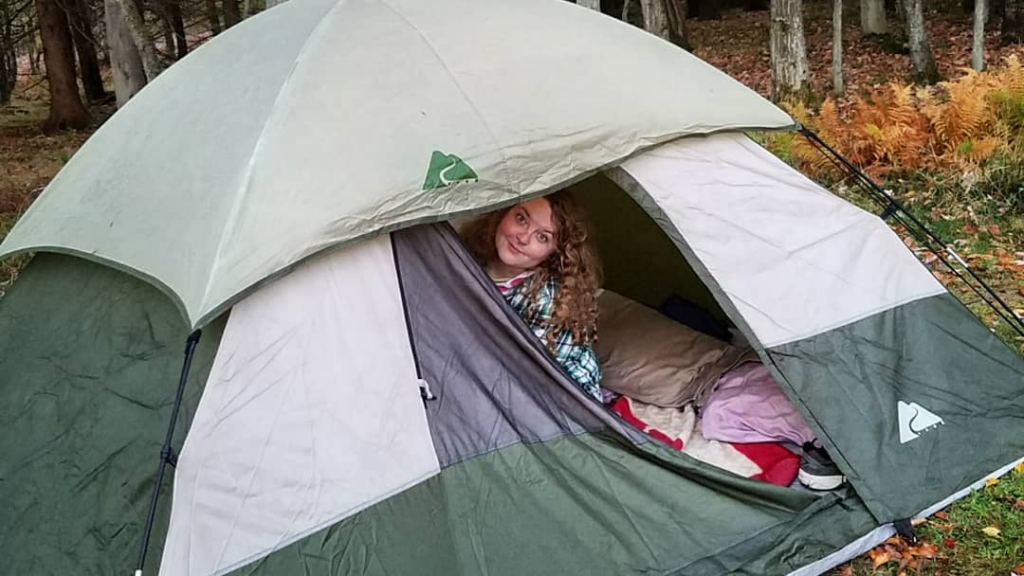
So, Wheeling may be a little different, to poke fun at Kellie and Haseebs first impressions of the city, but that isn’t necessarily a bad thing. I think Wheeling is great because Wheeling is different.
Before I left Kellie and Haseeb to enjoy the rest of their afternoon, I had one last question:
If you were hired to sell the City of Wheeling to the world, what would you say?
Haseeb jumped to answer – “Meet the people here. I guarantee you will fall in love with them. We’ve made the best f—ing friends and that’s what makes us want to stay.”
• Rosemary Ketchum is a member of the Wheeling City Council representing Ward 3. Ketchum also serves as the Chief Facilitator of the public health coalition “Edible Mountain”. Rosemary’s work in community organizing and politics has been featured on TODAY, MSNBC, CBS, and CNN.


